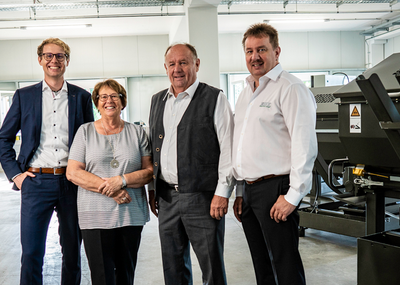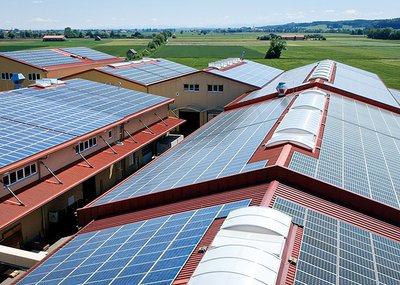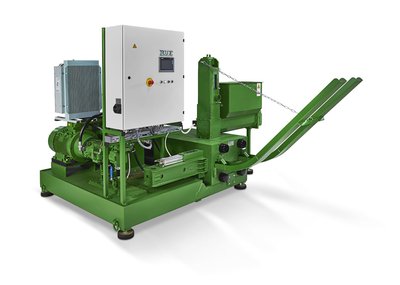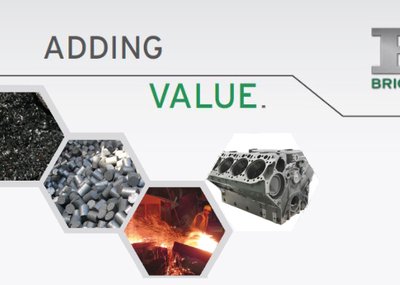Resources are finite. Since prices are very volatile, especially for metals, it is important to take countermeasures. One such countermeasure is using high-quality briquetting presses like those produced by RUF. This lays the foundation for the best possible reuse of metal chips in the metal cycle – in line with a closed-loop recycling strategy.
When metalworking companies remove their products from milling machines and lathes, grinding machines or saws, there is often little material left of the original semi-finished product. Most of it lies as chips in collection containers. These chips often have clinging cooling lubricants, meaning they have a residual moisture of up to 15 percent, in individual cases even higher. This situation needs addressing. Because on the one hand, there are legal requirements that prohibit the transport of wet, untreated chips. And on the other hand, attractively priced recycling in this form is hardly possible.
However even dry chips are not best suited for melting. Due to their low weight, they float in the molten bath, resulting in high melting losses. This approach is not sustainable but that can be easily optimised. The key to this is to collect the chips with as much varietal purity as possible and then briquette them. High-performance briquetting presses, such as those manufactured by Ruf Maschinenbau GmbH & Co. KG, Zaisertshofen, are perfect for this purpose.
These systems can reduce the moisture content of the metal chips to under two percent, depending on the material. In addition, they always ensure a high briquette density, which is close to that of the solid material. In figures: RUF-Presses achieve values in continuous operation that are up to 6.9 kg/l for cast iron, for example, or up to 2.5 kg/l for aluminium. The briquetting systems work with a specific pressing pressure of typically up to 4,000 kg/cm2 for cast iron, and 1,700 resp. 3,000 kg/cm2 for aluminium, and achieve throughputs of 30 to 3,000 kg/hour.
Implementing RUF presses brings another important advantage for manufacturing companies: Particularly volumetric chips require a lot of space and must be frequently transported out of the company. This makes logistics correspondingly complex and expensive, valuable space is wasted and expenses for storage and transport are significant. A lot of space is gained thanks to the extreme volume reduction inherent in briquetting. This is beneficial both for internal forklift logistics and externally when the briquettes are transported by truck for recycling. The financial expenditure and the use of energy are reduced to the same extent – which makes perfect sense for resource-conserving, sustainable management.
The Company:
The Zaisertshofen based company was founded in 1969 by Hans Ruf. Today, his sons Roland and Wolfgang Ruf run the business.
Around 150 employees develop and produce highly innovative briquetting systems in modular design for wood, metal and other residues. The smallest machine type RAP (RUF integration press) with a motor power of 4kW achieves a throughput rate of 20 to 150 kg/h (depending on material and chip type). The largest system with 90 kW (RUF 90) achieves up to 2,500 kg/h for aluminium, for cast iron up to 3,000 kg/h and for copper materials up to 5,000 kg/h.
In 1985, Ruf produced their first briquetting press and sold it to a woodworking factory. It is fully functioning to this day, proving the solid construction of the RUF systems. Today, more than 5,000 RUF briquetting systems are in operation in more than 100 countries.








